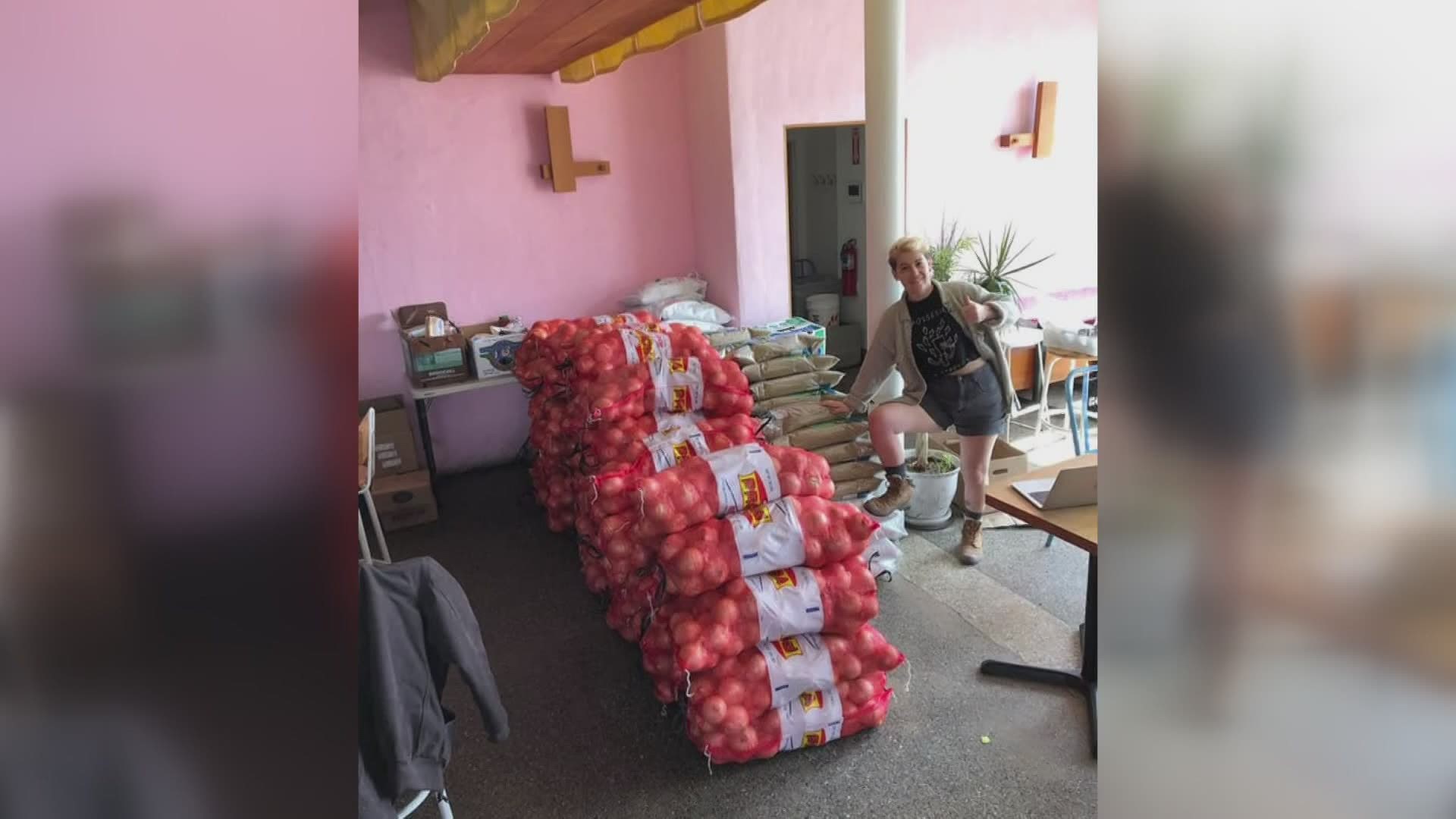MAINE, USA — Getting access to healthcare and other basic resources during the coronavirus, COVID-10 outbreak is also a major challenge for undocumented immigrants.
Edier from Honduras says it has been very challenging because every information is in English and the resources in Spanish are very limited for people like him.
According to the Maine Immigrants' Right Coalition, more than 50,000 immigrants and undocumented people live throughout Maine.
Maine Equal Justice is one of the organizations helping with legal services and advocacy during the outbreak. "We are the expert when it comes to policy issues when it comes to low-income populations in Maine," said Deborah Ibonwa, the Policy and Legal advocate at Maine Equal Justice.
Many people in Edier's position are worried that if they reach out for help during this outbreak, it may be used against them under the 'Public Charge Test.'
'Public Charge' is a new rule by the Trump administration that could deny some immigrants visa renewals or green card applications if they've used certain federally funded programs such as Medicaid or food assistance over a certain period of time.
Ibonwa tells NEWS CENTER Maine that for immigrants who are eligible to use Medicaid and who are worried about the public charge, it’s important to know that immigration authorities have said the use of Medicaid for COVID-19 related services will not be considered in a public charge decision.
"But they do not have to be worried about that we can assure you that immigration authorities have stated that anyone who reaches for help during COVID-19 won't fall under that category," said Ibonwa.
According to Ibonwa, Public Charge doesn't apply for anyone right now seeking help related to COVID-19. She says there is so much confusion that many immigrants, including those that never have to worry about public charge, think they do have to worry.
But uncommented people lack health care access even during these COVID-19 days. According to Ibonwa, they may be able to get tested, but there's no coverage for treatment.
They're providing information to people who don't speak English as their primary language.
Ibonwa tells NEWS CENTER Maine the main problem is that undocumented immigrants fall through the cracks with the federal bill.
Emergency General Assistance is a program that provides voucher payments that could directly cover basic needs. You have to show you can't afford your basic needs.
"For every other person that is not a citizen right now we encourage you if you are showing symptoms, if you think you are sick, contact your hospital, see if you can get tested but know that you can apply for free care, most hospitals have that as a resource which would allow you to get tested for free," said Ibonwa.
'Presente Maine' is a community-based organization that seeks to empower Latinx community members, to address and combat racism and poverty.
Right now 'Presente Maine' launched a food brigade and have been advising Latinx people to stay at home and bringing the food directly to them. So far they have distributed 15 thousand pounds of food to communities in need, including the Latinx community.
'Presente Maine' is also informing people about the latest information on the virus. The most common and number one worry for many of these community members is how to pay rent.
"We are pretty good at figuring out how to do 'free care' and connecting people to services, but again, that is not equity! Even though we know how to access their resources, people have to get a notarized letter, and it is not the same as what most people are afforded," said Crystal Cron, the president of 'Presente Maine.'
We are really trying to become more visible and give voice and power to the Latinx community in Maine.
"As this continues, it is hard for everybody else but it's even harder for people who've gone through some very traumatic experiences," says Mufalo Chitam, the Executive Director of Maine Immigrants' Rights Coalition.
Chitam says language barriers are one of the main challenges these days that undocumented immigrants are facing, trying to understand the evolving information of COVID-19 can be tricky for people and even more so for undocumented immigrants.
"We are translating to about 15 languages, there is enough information as we recognize English is a secondary language for them," said Chitam.
"There was a lot of misinformation out there so as a public health institution we established COVID-19 task force in Lewiston to educate and disseminate the right information for the community," said Abdulkerim Said, Executive Director of New Mainers Health Education Center.
The New Mainers Health Education Center in Lewiston "serves as the leading health-related, ethnic-based organization directly serving the needs of the immigrant and refugee youth and their families."
"The relief that the government has provided in response to COVID doesn't cover undocumented families, but we as a state can choose to do that and right now I think we need to do that," said Cron.
"Even though there are different ways where they can access help, it's not the same as what most people are afforded," said Cron.
Ibonwa wants the state and Maine governor to give aid to the undocumented workers during this pandemic.
"It's up to us as a state and the governor to make sure that everybody has basic healthcare, food security, financial security, housing," said Ibonwa.
RELATED: City leaders use Portland Expo to help prevent spread of coronavirus in homeless population

